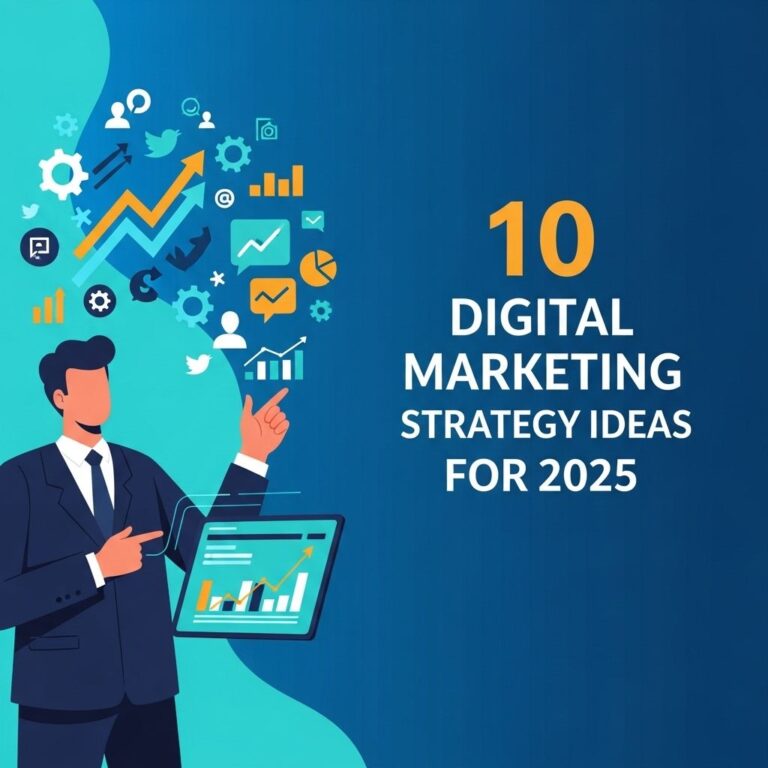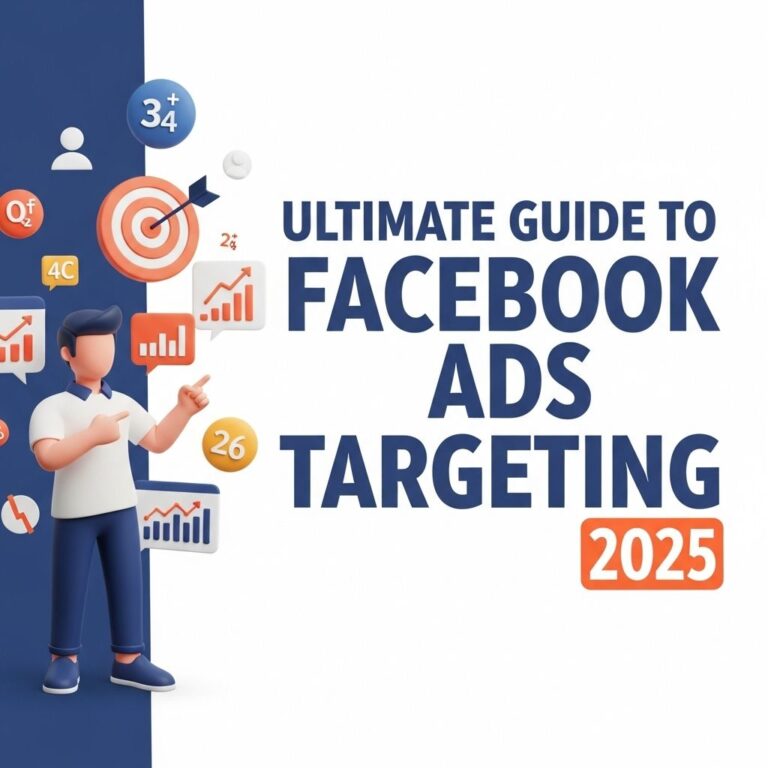Table of Contents
Understanding Digital Marketing
Digital marketing has revolutionized the way businesses interact with their customers. It provides a plethora of platforms and strategies that can help any brand enhance its visibility and reach its target audience. From social media engagement to SEO optimization, the possibilities are endless. As online consumer behavior continues to evolve, businesses must adapt to these changes to remain competitive and to capitalize on the opportunities digital platforms offer.
Unlike traditional marketing methods, digital marketing allows for real-time customer engagement and feedback. This immediacy can foster more personal connections with customers, leading to increased brand loyalty. Moreover, digital channels provide businesses with the ability to track and analyze data, enabling them to make informed decisions and tailor their strategies to suit their audience’s needs. The dynamism of digital marketing ensures that companies can continuously test, learn, and iterate their approaches for maximum effectiveness.
Key Strategies in Digital Marketing
To harness the full potential of digital marketing, it’s crucial to implement a well-rounded strategy that addresses your unique business needs. A successful digital marketing strategy not only focuses on attracting new customers but also on engaging and retaining existing ones. Here are some of the most effective strategies:
1. Search Engine Optimization (SEO)
SEO involves optimizing your website to rank higher in search engine results, thereby increasing organic traffic. This includes using relevant keywords, creating quality content, and maintaining a user-friendly website. A well-executed SEO strategy can significantly enhance your brand’s online visibility and credibility.
- Conduct keyword research to identify terms your target audience is searching for. Tools such as Google’s Keyword Planner can assist in finding keywords that not only apply to your niche but also have good search volume and low competition.
- Optimize your site structure, meta tags, and content for these keywords. Ensure that your website is easily navigable for users and search engines alike by implementing clear site architecture and internal linking.
- Focus on building high-quality backlinks to improve domain authority. Engage in guest blogging, collaborate with influencers, or participate in forums to gain relevant and authoritative backlinks.
- Leverage local SEO to attract customers in your vicinity. This involves optimizing your business listings, managing customer reviews, and creating local content to enhance visibility for location-based searches.
2. Social Media Marketing
Platforms like Facebook, Instagram, and Twitter allow businesses to connect with their audience in real-time. Developing a strong social media presence can enhance brand loyalty and customer engagement. Social media offers an avenue for creativity, enabling brands to showcase their uniqueness and personality.
- Create engaging and shareable content tailored for each platform. Different platforms appeal to different demographics and require personalized content strategies.
- Interact with followers and address their questions or concerns promptly. Engaging with your audience helps build a community around your brand, fostering deeper relationships.
- Utilize analytics to track engagement and adjust strategies as needed. Analyze metrics such as post reach, likes, comments, and shares to understand what content resonates most with your audience.
- Experiment with social media advertising to expand your reach and target specific segments of your audience. Ads can be tailored based on location, interests, and demographics for optimal effectiveness.
3. Content Marketing
Content is king when it comes to digital marketing. By providing valuable and relevant content, businesses can establish authority and foster trust with their audience. Effective content marketing addresses the needs and interests of your audience, positioning your brand as a thought leader in your industry.
- Produce high-quality blog posts, videos, and infographics that address common customer pain points. Content that provides solutions to problems is more likely to be shared and appreciated by audiences.
- Use content to guide potential customers through the purchasing funnel. Align your content with the stages of the buyer’s journey, from awareness to consideration to decision, to nurture leads and convert them into customers.
- Regularly update content to keep it fresh and relevant. Search engines and users alike value up-to-date information. Refreshing older content can boost its performance and visibility.
- Incorporate storytelling to engage and captivate your audience. People connect with stories on an emotional level, making your brand more memorable and appealing.
4. Email Marketing
Email marketing remains one of the most effective channels for reaching customers directly. With an ROI that outmatches many other marketing tactics, emails provide a personal touch and a direct line of communication with your audience.
- Build a segmented email list to ensure your messages are personalized and relevant. Segment your audience based on demographics, purchase history, or engagement behavior.
- Create compelling email content that captures attention and encourages clicks. Use catchy subject lines and incorporate strong calls to action (CTAs) to drive desired results.
- Automate your emails to nurture leads and maintain consistent communication with your subscribers. Automation can save time and ensure your audience receives timely information.
- Test and analyze your email campaigns to gain insights and improve performance. A/B testing different elements such as subject lines, visuals, or sending times can help optimize your strategy.
5. Pay-Per-Click Advertising (PPC)
PPC advertising is a model where advertisers pay a fee each time their ad is clicked. This method offers a quick way to increase website traffic and can be highly effective if managed properly.
- Conduct thorough keyword research to choose terms that will maximize your ad’s relevance and reach.
- Create compelling ad copy to attract clicks. Your ad copy should be clear, concise, and include strong calls to action that entice users to learn more or make a purchase.
- Optimize your landing pages to ensure they align with your ad’s promises and encourage conversions. A well-designed landing page should be easy to navigate and focus on driving the desired action.
- Analyze and refine your PPC campaigns regularly. Adjust bids, test different versions of your ads, and optimize your targeting to ensure the highest return on investment.
FAQ
How can I measure the success of my digital marketing strategies?
You can measure success through various metrics such as website traffic, conversion rates, social media engagement, and ROI. Tools like Google Analytics offer insights into user behavior on your site, while social media platforms provide analytics for engagement metrics. Regularly reviewing and analyzing these statistics will help you determine what’s working and what needs improvement. Establishing key performance indicators (KPIs) aligned with your business goals will help you focus on what matters most.
What’s the importance of SEO in digital marketing?
SEO is crucial because it improves your website’s visibility in search engine results, leading to increased organic traffic and potential sales. It helps your business reach the right audience at the right time. A strong SEO strategy ensures your content and website are optimized for both search engines and users, which can result in higher rankings, greater credibility, and more significant business growth over time.
How often should I update my digital marketing strategy?
Your strategy should be revisited regularly, at least quarterly, to adapt to changing market trends, customer behavior, and new technologies. Regular updates ensure your approach remains effective and competitive. Monitoring industry news, keeping an eye on competitors, and remaining receptive to customer feedback will help shape your strategy. Being agile and responsive allows for continued success in the ever-evolving digital landscape.
Is digital marketing suitable for small businesses?
Absolutely. Digital marketing can be especially beneficial for small businesses as it offers cost-effective ways to reach a broader audience. Even with a limited budget, strategies like SEO, social media marketing, and email marketing can effectively level the playing field against larger competitors. Small businesses can start small, analyze results, and gradually scale their efforts to maximize growth and engagement.









